Random Thoughts About Avengers: Infinity War and the Future of the Marvel Cinematic Universe (Review)
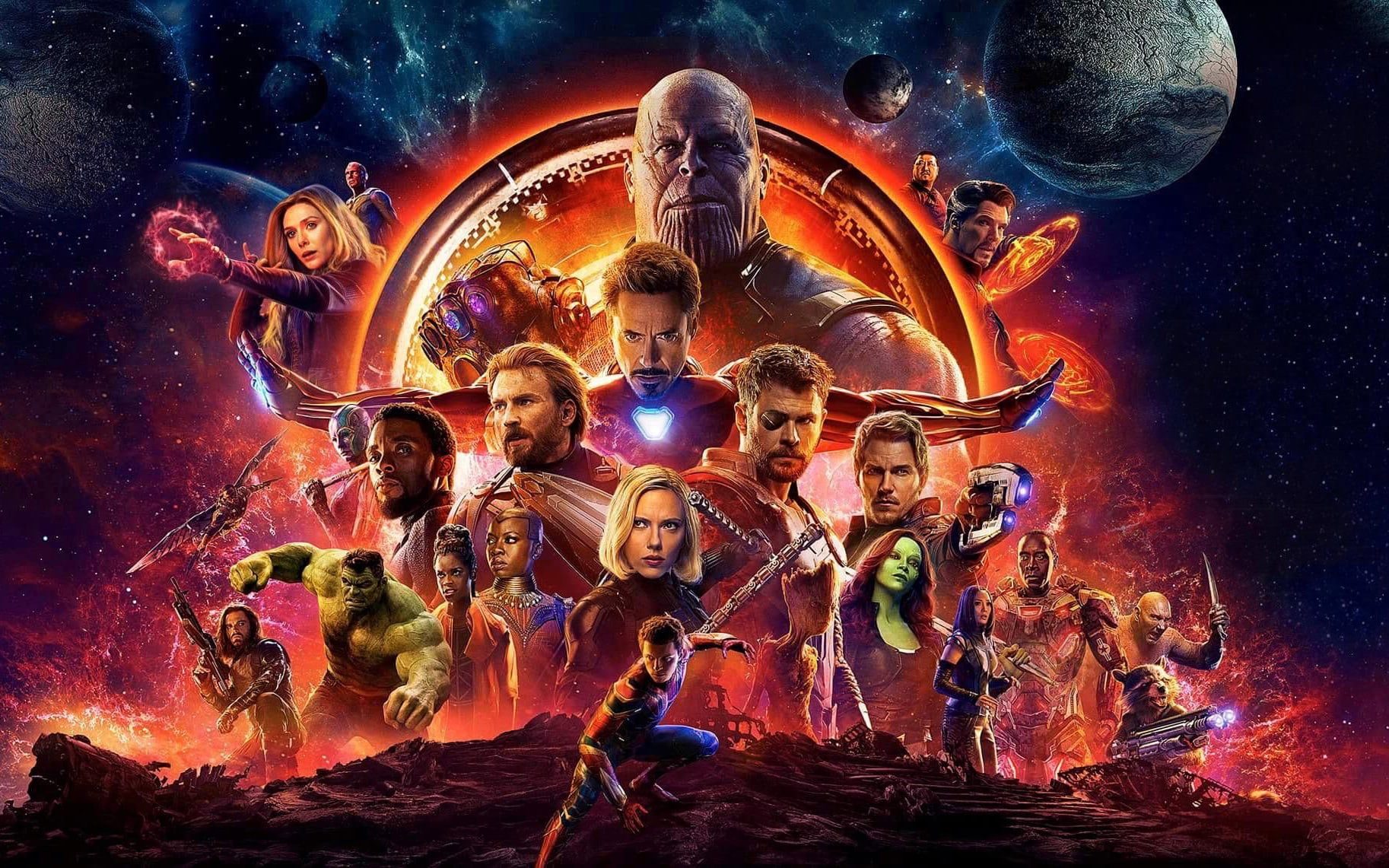
This article contains spoilers for Avengers: Infinity War. Consider yourself warned.
Last week, the Marvel Cinematic Universe (MCU) — which has spanned ten years and (so far) nineteen movies, stretching all the way back to 2008’s Iron Man — came to a head with last week’s release of Avengers: Infinity War, which saw most of the MCU heroes come together to try and stop a cosmic despot named Thanos from wiping out half of all life in the universe.
Even if you have zero interest in superheroes and comic book movies, there’s no denying that the MCU is an impressive filmmaking project, the scale of which has never been attempted before. And love it or hate it, there are no signs that it’s slowing down any time soon — not when Avengers: Infinity War had both the biggest domestic and global openings of all time ($258 million and $640 million, respectively).
It’s tempting to label Avengers: Infinity War a “critic-proof” movie. After all, why care what critics think in light of those aforementioned box office numbers? But given that it currently has an 84% “Fresh” rating on Rotten Tomatoes, critics clearly love Avengers: Infinity War, as well.
As for me, I’ve been thinking about the movie a lot ever since seeing it this past weekend (in a packed theatre, natch) and subsequently discussing it with friends, so here are some random thoughts and observations about both Avengers: Infinity War and the MCU in general.
Marvel Goes Cosmic
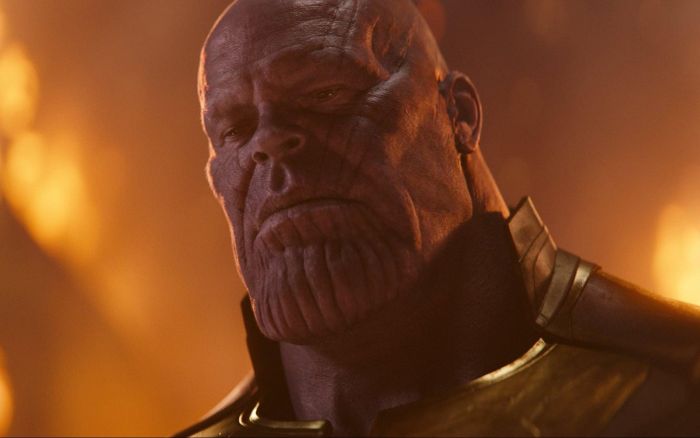
First off, I love that Marvel has doubled down on exploring its cosmic side. I still remember how much I nerded out over the reveal at the end of The Avengers that the big bad pulling all of the strings was, in fact, Thanos, and not some more mundane baddie.
There was something audacious about that decision, given how over-the-top and overly complicated Marvel’s cosmic mythology can get, that just struck me as brilliant, and instantly got me psyched about where the MCU was heading and the scope of the over-arching story that it was aiming to tell.
Or, as I wrote in that earlier article:
I’ve always been a fan of Marvel’s more cosmically minded characters and titles — the Silver Surfer is my favorite comic book character, period — and so the thought of future Marvel movies delving into that aspect of Marvel’s mythology is an exciting one. Does this mean we’ll see the Infinity Gauntlet appear at some point, or the Beyonders (who are the creators of the Cosmic Cubes, which is what the Tesseract really is)? What of Adam Warlock? Will cosmic entities like the Celestials, Eternity, the In-Betweener, the Elders of the Universe, and the Living Tribunal make appearances? The mind reels.
Avengers: Infinity War pulls heavily from both 1991’s Infinity Gauntlet series and 2013’s Infinity crossover event, but it also charts its own path. One of its best departures from the comics concerns its villain, the Mad Titan Thanos. In the comics, Thanos is literally death-obsessed in his quest to extinguish life throughout the universe; his ultimate aim is to woo the Marvel universe’s personification of death, with whom he has been obsessed his entire life.
That’s appropriately ridiculous and comic book-y, but in the movie, Thanos’ mission is more philosophical. Driven by a stringent utilitarianism, he truly believes that wiping out half of all life is necessary to bring balance to the universe and ensure its survival. The best villain isn’t someone who sits there twirling his mustache and laughing maniacally. Rather, he has conviction in the rightness of his actions, such that you find yourself thinking that he might just have a point after all. Thanos’ conviction makes him a more compelling villain, especially as the movie reveals his own inner turmoil over what he must do (most notably concerning his relationship with his adopted daughter Gamora).
Oh The Places You’ll Go
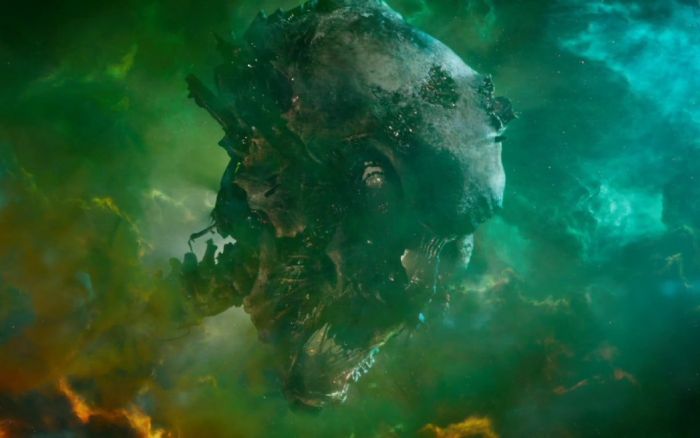
Related to its cosmic leanings, I loved all of the movie’s strange, weird space locations, such as Titan, Knowhere, Nidavellir, and especially Vormir, the location of the Soul Stone.
There was especially something about that last planet’s design that evoked a sense of wonder in me, like we were seeing the ruins of some ancient cosmic temple, and it made me want to know more about the MCU in a way that no character has ever done.
(Sidenote: The reveal of the Red Skull, last seen in Captain America: The First Avenger, as the Soul Stone’s keeper on Vormir was one of the movie’s best little reveals.)
The Greatest Avenger
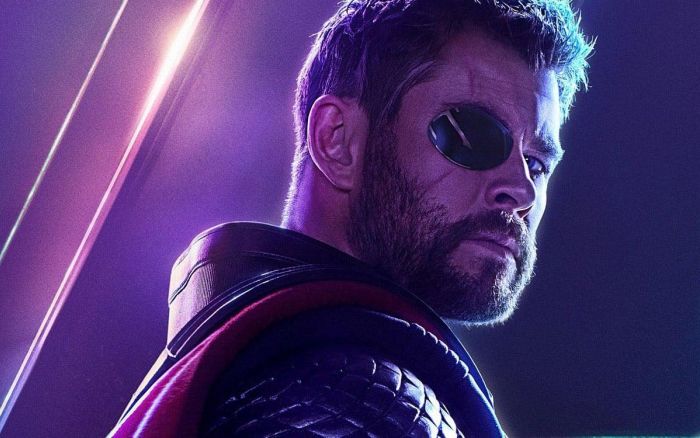
While the MCU has arguably revolved around Iron Man/Tony Stark — he was the first hero we saw back in 2008, he helped assemble the Avengers, and Robert Downey Jr.‘s performance has been uniformly great — it’s hard not to think that Thor is actually the best Avenger following Avengers: Infinity War.
I’ve never been a Thor fan. I didn’t care for him in the comics, and the first Thor movie was just OK (I never saw the second). He was decent in the first Avengers movie but felt almost perfunctory in Avengers: Age of Ultron. But the character underwent quite a bit of development in the rollicking Thor: Ragnarok. Losing both your mystical hammer and your eye to the evil sister you never knew you had will do that to you (as will the death of your father and the destruction of your homeland).
That development pays off handsomely in Avengers: Infinity War. Not only does he have some of the movie’s best lines — e.g., constantly calling Rocket “Rabbit” — but Thor undergoes the greatest journey in the movie, both narratively and emotionally. As CBR’s Ian Cardona puts it:
As Thor goes through a great ordeal, [Chris] Hemsworth’s portrayal has never been so astounding. He makes the audience feel the weight of every word he speaks. His attempts at humor through pain are heartbreaking, and his raw emotion is palpable. These are emotions that Thor carries throughout the film, and it leads to some of the most amazing character moments.
One of the most powerful scenes in Avengers: Infinity War occurs when Thor ruminates on all that he’s lost and then attempts to mask it with his trademark humor and bravado — attempts but doesn’t quite succeed. And it all leads up to one of the movie’s most crowd-pleasing moments, when Thor arrives in Wakanda via the Bifröst, newly forged Stormbreaker weapon in hand, to take on Thanos’ hordes and turn the tide of battle.
For Every Punch, There Should Be a Quip
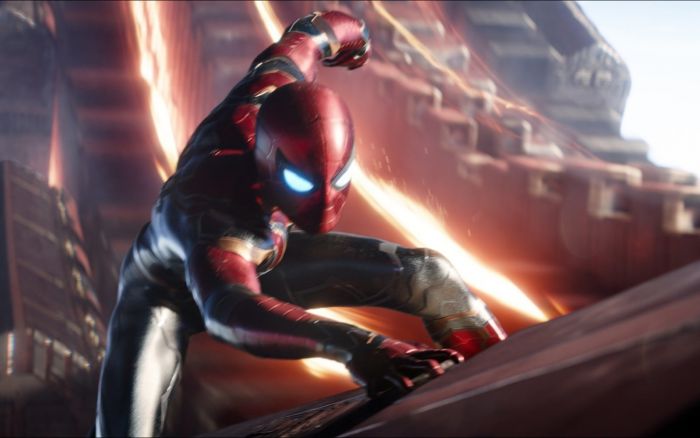
Walt Disney once said, “For every laugh, there should be a tear.” That guiding principle explains why so many Disney and Pixar movies adroitly balance mirth and melancholy. The Marvel movies, it could be said, operate by a slightly different principle: for every punch, there should be a quip. The Marvel movies have never been afraid to crack a joke even in the middle of world-ending events, and Avengers: Infinity War is one of the best examples — and I wouldn’t have it any other way.
From the Guardians of the Galaxy crushing on the muscle-bound Thor (“He is not a dude. You are a dude. This is a man.”) while Quill tries to out-macho him to Peter Parker’s pop culture references and giddy sense of joy at his new Spider-suit and teammates, from the sniping between Tony Stark and Doctor Strange to Thor’s aforementioned Rocket/Rabbit goofiness, Avengers: Infinity War is filled with jokes — and amazingly, most of the them work pretty well.
However, this doesn’t mean that Avengers: Infinity War isn’t without its more emotional moments. They don’t always work so well, with the exception of Thor’s inner turmoil. One other notable exception occurs at the very end, after the heroes — major spoiler alert — fail to stop Thanos from annihilating half the universe’s population. Not even superheroes are immune to Thanos’ devastation, and Peter Parker’s fear as he fades away in Tony Stark’s arms is quite moving.
They’re not really dead, are they?
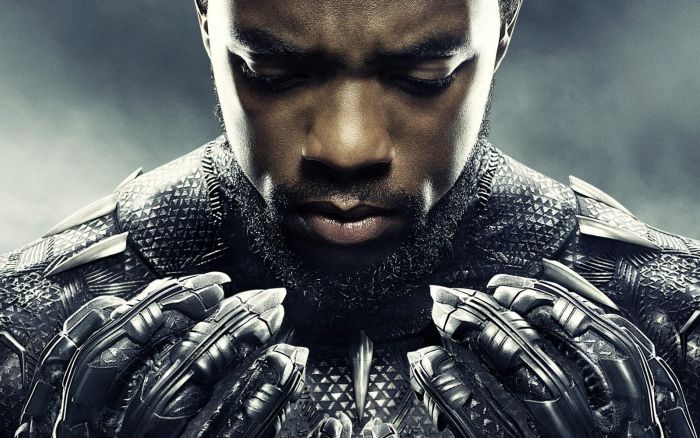
Avengers: Infinity War is, of course, a comic book movie, and in this day and age, nobody ever really dies in a comic book (for better or worse). So even though the end of the movie sees Spider-Man, Black Panther, Doctor Strange, Peter Quill, Scarlet Witch, and others disappear into oblivion, it’s the safest bet in the (cinematic) universe that at least some of them will be resurrected by the end of the fourth Avengers movie (coming to theatres May 3, 2019).
Some of this is simple business sense. Given the huge success of, say, Black Panther (which has earned $1.3 billion to date), there’s no way that Disney won’t bring the character back for a sequel (or two). And there are already Guardians of the Galaxy and Spider-Man sequels planned for 2019 and 2020, so those characters won’t remain stuck in non-existence, either.
So yes, I fully expect dead characters to return because that’s just how it is (and one can certainly make a case for that being bad in and of itself). That being said, I do hope the way in which they’re brought back doesn’t feel like a cheap cop-out, even if it requires a massive MacGuffin or two.
Maybe it’ll be Thanos’ guilt over killing Gamora that proves his undoing. Or maybe Captain Marvel, who is summoned in the movie’s obligatory post-credits sequence, and has a movie coming out March 8, 2019, will use her cosmic powers to undo the damage. Or maybe, just maybe, Hawkeye — who didn’t appear in Avengers: Infinity War — pops up in the next movie with a special, super-duper anti-Thanos arrow that fixes everything.
My personal theory? Upon receiving god-like knowledge from the Infinity Stones, Thanos realizes the weakness in his philosophy and that ultimately, his actions weren’t as fair or equitable as he thought and/or his actions have somehow done more damage to the universe than overpopulation ever could. And so he uses the Infinity Stones to reset everything. This would dovetail nicely with Doctor Strange’s statement, after he used the Time Stone to look into millions of possible futures, that there’s only one future in which they win and it apparently requires Thanos committing genocide (which explains why he gives Thanos the Time Stone).
This would also be a nice reference to another Thanos-related comic, 2003’s Marvel: The End, in which the Titan discovers a fundamental flaw in the universe and ultimately sacrifices himself to fix it. Considering how Avengers: Infinity War made Thanos more complex and compelling than a stock villain, I wouldn’t be surprised if the writers give him an ultimately redemptive arc in Avengers 4.
However the universe is ultimately restored, it’d be nice if future Marvel movies acknowledged, at least a little bit, the trauma that everyone — both the dead and the spared, both superheroes and civilians — would almost certainly suffer knowing that half the universe had been wiped out at some point.
The Future of the Marvel Cinematic Universe
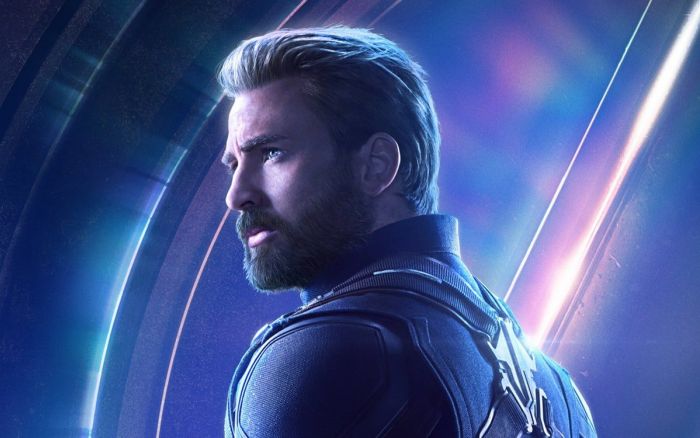
There’s been a lot of conjecture about the shape of the MCU following Avengers 4. Again, some of this is simply tied to business. The contracts of several key MCU actors, like Chris Evans (Captain America) and Robert Downey, Jr., are ending (or getting close to ending) and/or its just time for them to go because their characters have reached a natural conclusion.
What’s more, even MCU mastermind Kevin Feige has stated that Avengers 4 represents an actual ending:
[T]he entire intention of Infinity War and the next Avengers film next year was to have an ending — to bring a conclusion to 10 plus years, 22 movie narrative in a way that hadn’t been done before in this particular type of film. It’s been done before in films where there are a finite number of books, and they finish telling the story for the books, so they come to an ending. Characters like Spider-Man or Batman or James Bond or Iron Man, who have been around for so long and are always refreshed in comic books or novels or movies, you don’t necessarily get that kind of an endpoint — and we wanted to do that, which is what these next two Avengers films are.
Feige’s statement is still kind of vague, but I appreciate that he mentions the problem in bringing any sense of closure to some of our most beloved fictional characters. And closure is a critical component in finding any sort of meaning in a storyline. Without closure, without some sense of ending — be it uplifting or tragic — it’s hard to feel like a story mattered. (Alan Moore explains this beautifully in his Twilight of the Superheroes proposal, which you can find with some Googling despite DC’s best efforts.)
So how to bring closure to the MCU, or at least this phase of the MCU? It makes sense to retire at least some of the original Avengers, or at least dramatically downplay them and/or reserve them for cameos in future movies (when it makes sense).
For example, let Captain America go out in a blaze of glory, one that represents, once and for all, all that is good and righteous and inspirational about his character — something held up in future movies as an ideal to strive towards. Let Tony Stark retire and make way for a new Iron Man, which has recently happened in the comics. Let Thor finally find a place where the remnants of Asgard can peacefully settle, where he can rule over them as the wise king that Odin ultimately failed to be.
As for future phases of the MCU, the sky’s the limit considering the depth of Marvel’s stable of characters. Even if Thanos is destroyed at the end of Avengers 4, there are still plenty of cosmic characters who can have adventures in space. You could bring in Nova, for example, given that the Nova Corps was introduced in the first Guardians of the Galaxy movie, and Thanos’ destruction of the Nova Corps’ homeworld of Xandar would make for a nice origin story. Finally, Disney’s intention to acquire 20th Century Fox, which owns the movie rights to several key Marvel properties (e.g., X-Men, Fantastic Four), is bound to get nerd minds a-whirling with possibilities.
In any case, next year may be the last time we’ll see Captain America and Iron Man suit up, trade quips with each other, and exchange punches with the bad guys, but it won’t be the last we’ll see of Marvel’s heroes. And while that may certainly result in some superhero fatigue, so long as the Marvel Cinematic Universe keeps delivering on its promises like it does with Avengers: Infinity War, then I’ll keep watching its movies.